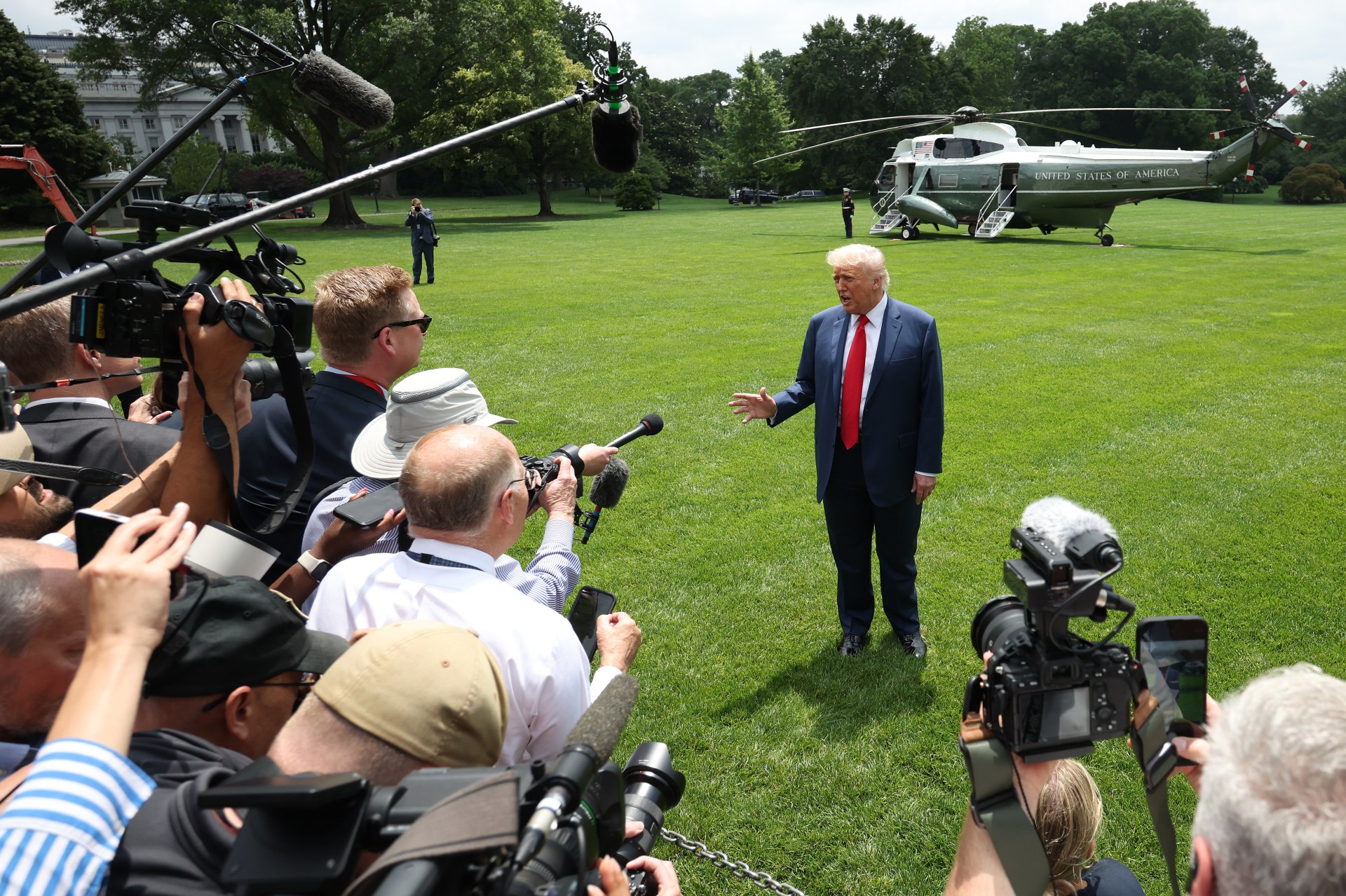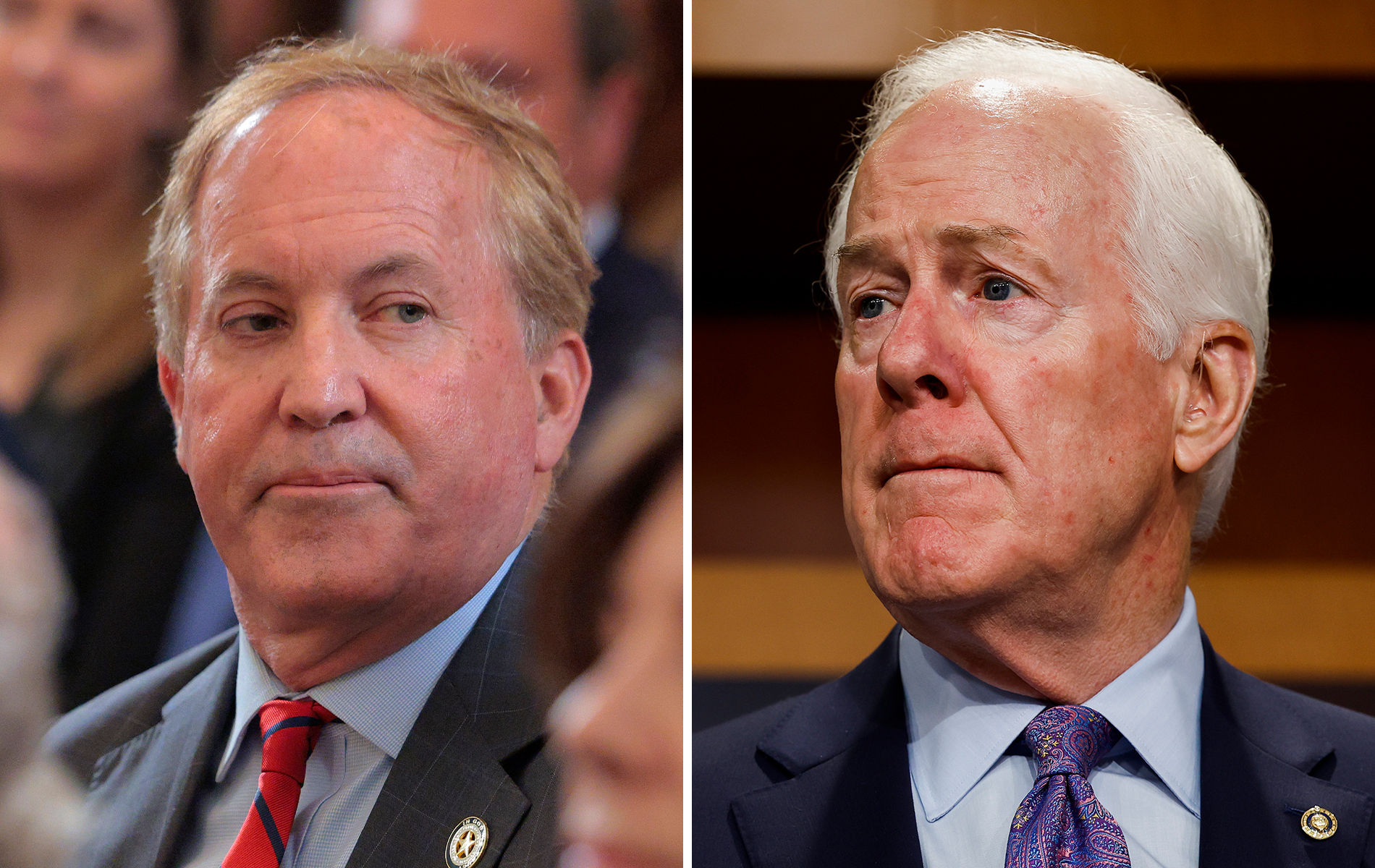A year ago, I expected that another Trump presidency would push the Democrats to the left. For every action, there is an equal and opposite reaction, and Trump’s first term certainly sent much of the Democratic Party hurtling leftward. But there are few iron laws of politics, and it’s not clear where the party will end up three years from now.
In his latest piece on the website, David Drucker attended a conference where centrists plotted their comeback. And I examined the question in my recent profile of Arizona Democratic Sen. Ruben Gallego—the former member of the Medicare for All Caucus and Congressional Progressive Caucus is making moves toward the center, and isn’t playing coy about his interest in a 2028 presidential bid. Last month, Gallego introduced an immigration reform proposal that emphasized border security, and in his interview with The Dispatch, he made news on the issue of transgender rights by saying there are some sports in which biologically male children who identify as female should not be competing against girls. Gallego faced blowback from LGBT groups, while others thought his positioning was smart politics.
But it remains unclear whether the party will move closer toward Gallego or closer toward progressive New York Rep. Alexandria Ocasio-Cortez, who provided a stark contrast to Gallego by recently sending out emails calling Immigration and Customs Enforcement a “rogue agency that should not exist.”
—John
Top Stories From the Dispatch Politics Team
During a recent political conference in Washington, D.C., a collection of lawmakers condemned the Democratic Party as elitist, leftist, and out of touch. All the speakers were Democrats—as were most in an audience that applauded at nearly every turn. Indeed, many of the Democrats’ problems are basic, according to the lawmakers who headlined the meeting and took turns ripping the bark off of the party.
In less than two months, the United States has seen at least three terror attacks on Jews by people opposing Israel’s conduct toward Palestinians. But as antisemitism rises across the country and violent attacks from pro-Palestinian actors increase, members of Congress who have been the most critical of Israel are unwilling to say that the movement supportive of reining in Israeli actions in Gaza has a problem with violence.
One of the more notable responses to the ongoing Trump-Musk snipefest came from Vice President J.D. Vance. Comedian and podcast host Theo Von asked Vance about the spat, and the vice president, between sips from a can of Celsius energy drink, laughed a bit uncomfortably before saying he would, of course, side with Trump. Vance waved away Musk’s angry eruption as a mistaken reaction from a “frustrated” and “emotional” person. But Trump, he went on, is different. “He’s not, like, quick to temper. He’s not one of these guys who flies off the handle,” Vance claimed. Later that day, on X, Vance went on. “There are many lies the corporate media tells about President Trump. One of the most glaring is that he’s impulsive or short-tempered,” he posted. “Anyone who has seen him operate under pressure knows that’s ridiculous.”
After the electoral disaster of the Barry Goldwater candidacy in 1964, William F. Buckley Jr. acquiesced to backing Richard Nixon for president over a more ideologically aligned alternative Republican, justifying his stance by articulating what would become known as the Buckley rule: choosing “the most right, viable candidate who could win it.” For much of his time on the political scene, Donald Trump has modified the Buckley rule for Republican primaries in two ways: replacing “most right” with “most pro-Trump,” and chopping off the final four words. In the president’s inflated self-assessment, the question of electability of a candidate he supported was tautological. Trump is a winner, and he chooses winners.
Enjoying our Dispatch Politics Roundup? Consider forwarding this article to someone you know who likes independent, fact-based journalism.










Please note that we at The Dispatch hold ourselves, our work, and our commenters to a higher standard than other places on the internet. We welcome comments that foster genuine debate or discussion—including comments critical of us or our work—but responses that include ad hominem attacks on fellow Dispatch members or are intended to stoke fear and anger may be moderated.
With your membership, you only have the ability to comment on The Morning Dispatch articles. Consider upgrading to join the conversation everywhere.